PC makers said they care about sustainability at CES 2022. Is that true?

 Image: Acer
Image: AcerCES sets trends in the PC market for the year to come. This year, sustainability became an area of focus, with multiple PC makers – and, of course, companies in other industries – announcing sustainability goals and promising to use more recycled materials in new devices.
But to what end? Do PC makers have anything new to say on sustainability, and is there really a difference between companies? I dove into a pile of CES announcements and annual corporate responsibility reports to find out.
[ Further reading: Best of CES 2022: The most intriguing and innovative PC hardware ]
Who had announcements at CES 2022?
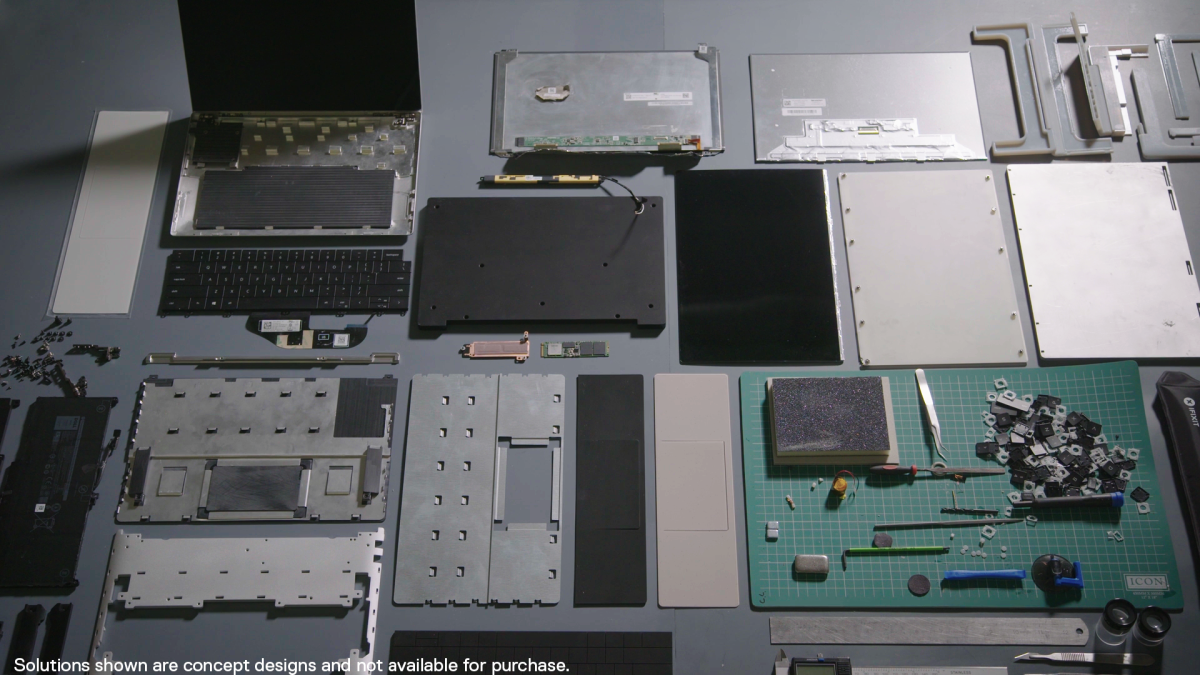
Dell
Dell
Dell
Most PC makers had something to say on sustainability during CES 2022, but Dell (which technically didn’t attend CES and hosted its own digital event) had the best reveal. The Concept Luna prototype is Dell’s attempt to pair sustainable, repairable design with the thin-and-light appeal of XPS laptops. Luna would let users swap key components, like the display or keyboard, to extend the life of a laptop instead of swapping it out for an all-new PC. (You can see the disassembled laptop pictured above.)
The downside? It’s only a concept—and, as I’ll get into later, some start-ups are already selling what Dell’s concept has promised.
Lenovo also had a strong showing. The new Yoga 13 will offer a fabric-wrapped cover made with “up to 50 percent recycled plastics.” The power adapter and packaging will use recycled materials, as well. The company is also expanding the CO2 offset service it debuted for some business customers last year. Shoppers buying Lenovo Legion and Yoga PCs will be able to opt-in by the end of January 2022 (in some regions, at least).
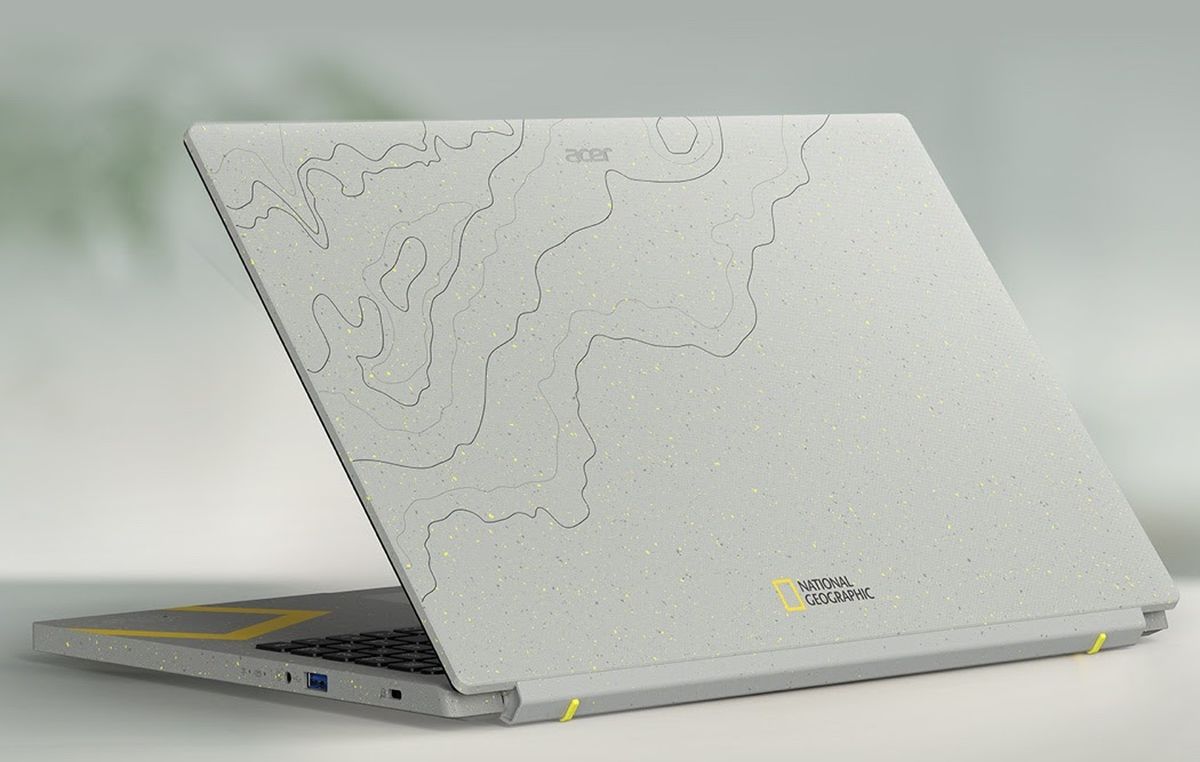
Acer
Acer
Acer
Acer impressed with its Vero National Geographics Edition laptop. The machine will use post-consumer plastics in a number of large components, from the chassis covers to the key caps, and pledges use of 100 percent recyclable packaging. The laptop will also be relatively easy to repair thanks to a design that uses standard screws to secure the bottom cover. It looks outstanding, but Acer doesn’t plan to sell it in North America. We’ve already reviewed the eco-friendly Acer Vero laptop it’s based on, however, which was quickly followed by a fuller Vero lineup.
HP continued its long-standing sustainability work by announcing new Elite Dragonfly devices that claim to be the first laptops to incorporate ocean-bound plastics. “Its speaker enclosure component is made with 50 percent post-consumer recycled plastic including 5 percent ocean-bound plastics,” the press release proudly proclaims, and the Elite Dragonfly is just the spear of a wider ocean-bound plastics initiative for the company. “Others include the HP EliteDisplay E273d, the world’s first display manufactured with ocean-bound plastics, and the Original HP ink cartridges made with plastic bottles collected in Haiti. To date, HP has sourced over one million pounds – or more than 35 million plastic bottles or more than 450 metric tonnes – of ocean-bound plastics from Haiti for its products.”
LG and Samsung had nothing to say about sustainability in the PC market, instead focusing on television and appliances. This makes sense given each company’s PC business is a tiny sliver of its pie. Still, it hints eco-friendly laptop shoppers should look elsewhere.
Which brings us to the eco-losers of CES 2022: Asus, Razer, and MSI. Each had nothing to reveal about improvements in sustainability, repairability, or carbon footprints. This isn’t a shock given each company’s small size and focus on high-performance hardware, but still disappointing. If Acer can put out a repairable laptop partially built from recycled plastics, why not Asus or Razer?
Product impact reports let you be the judge, but not everyone publishes them
The CO2 offset service Lenovo announced at CES 2022 products is one piece of an important puzzle. However, discerning the impact of a particular laptop or PC is impossible without help from the company that made it.
Three major PC makers publish product impact footprint for all, or a large majority, of their products: Dell, Lenovo, and HP. These reports are not standardized but tend to include roughly similar information. They account for manufacturing, packaging, lifetime power consumption, and proper disposal at the end of the PC’s useful life.
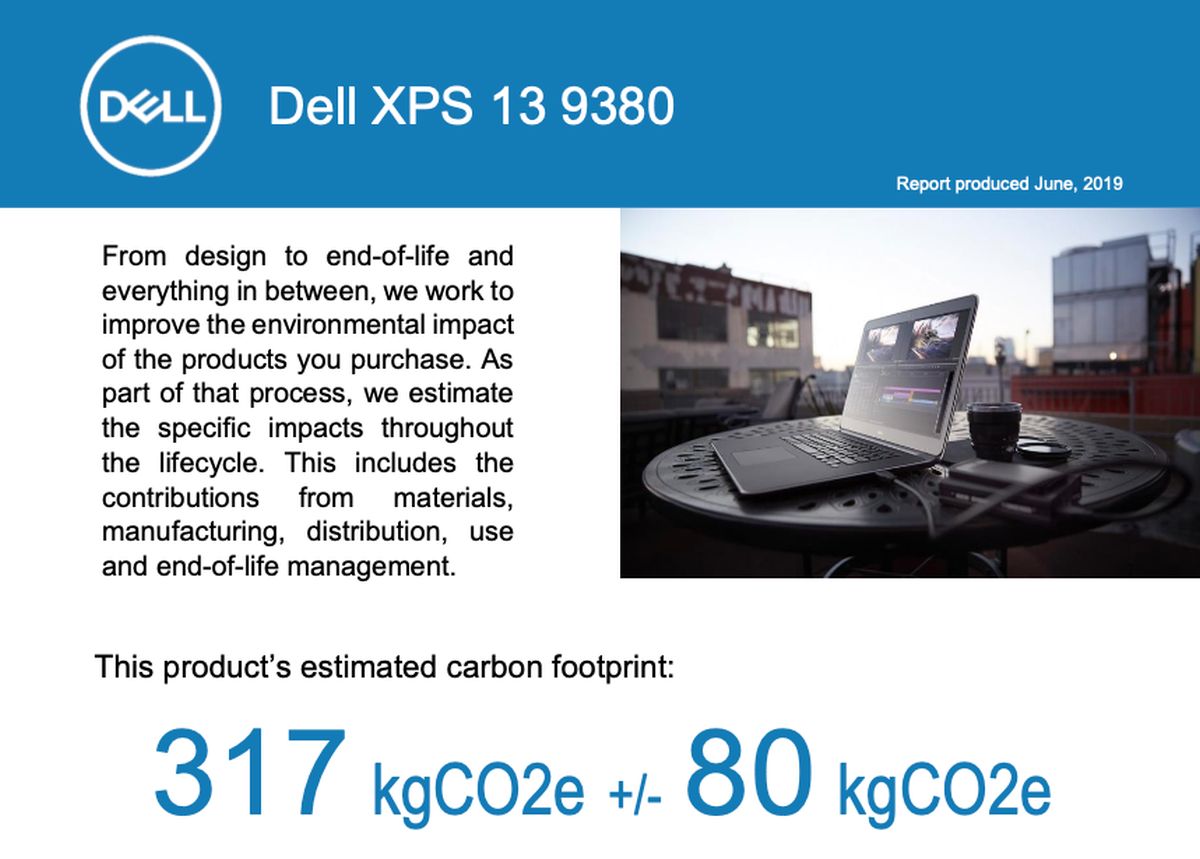
Dell
Dell
Dell
Product impact reports are an excellent resource and well worth perusing before you make a purchase. They provide clear, concise information that’s directly relevant to the laptop or desktop you want to buy.
The differences between machines can be significant. Lenovo estimates the ThinkPad X1 Titanium has a lifetime carbon footprint of 470 kg CO2. That’s almost 50 percent more than Dell’s XPS 13 9380, which lists an average of 317 kg CO2.
There’s an even larger gap between PC categories. Upgrading from the Dell XPS 13 9380 to the XPS 17 9710 lifts total carbon footprint from 317 kg CO2 to 509 kg CO2. A high-end desktop tower like the Dell Precision 7920 blows the lid off the carbon impact, raising it to an estimated 2496 kg CO2.
Dell, Lenovo, and HP deserve credit for these reports, which take no small effort to produce. Other PC makers don’t live up to their example.
Acer, Asus, Razer, MSI, Samsung, and LG lack impact reports for nearly all PC laptops and desktops, though there are occasional exceptions. I can understand why Razer or MSI might lack the resources to produce these reports, but megacorporations like Samsung and LG have no excuse.
Company emissions are a big deal
Dell, Lenovo, and HP take the lead on company-wide emissions, as well, with commitments to achieve net zero greenhouse gas emissions by 2050 and 2040, respectively, and each promising to a 50 percent reduction of direct emissions by 2030.
The trio also publishes significant data about the total impact of each company’s operations. This is known as “scope 3” emissions and tallies the many ways a company may indirectly put greenhouse gases into the atmosphere, from employee commuting to disposal of old and obsolete products.
LG and Razer are less aggressive, but deserve mention for their commitment to reach carbon neutrality by 2030. This isn’t quite the same thing as a pledge to reduce total greenhouse gas emissions, however, and each company published limited data on total “scope 3” emissions in their latest corporate sustainability report.
Acer, and Asus have weak goals, such as a pledge to hit 100% renewable energy by 2035 (for Acer) or a 50 percent carbon reduction in emissions from “global operations centers” by 2030 (for Asus). Samsung and MSI lack specific, company-wide commitments to carbon neutrality or greenhouse gas emission reduction.
Repairability needs more attention
When it comes to environmental friendliness, it’s usually better to stick with the devices you own than to buy new, even if the new device is more efficient than the one it replaces. But that’s not always an option. Modern laptops are notorious for complicated and compact design that can force you to toss out an entire laptop because a single port stopped working.
Major PC makers don’t have a grasp on this problem. There’s limited standardization of components, often even across laptops in the same model line, and repairs range from difficult to impossible.
There’s no agreement on how repairability should be measured, either. The Vero National Geographic Edition shown by Acer at CES 2022 certainly looks more repairable than an Acer Swift 5, but how does it compare to a Lenovo ThinkPad E15?
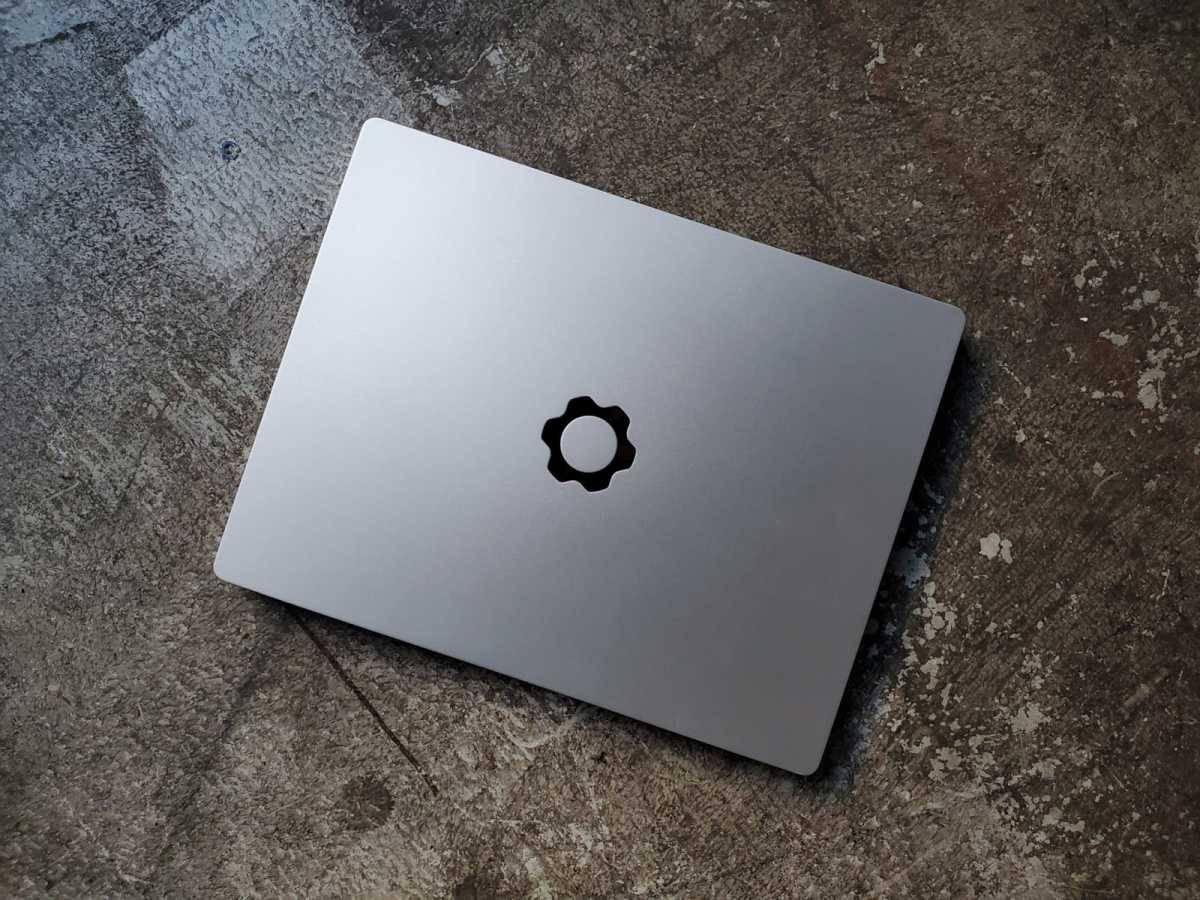
The ultra-repairable Framework laptop.
The ultra-repairable Framework laptop.
Gordon Mah Ung / IDG
The ultra-repairable Framework laptop.
Gordon Mah Ung / IDG
Gordon Mah Ung / IDG
Framework
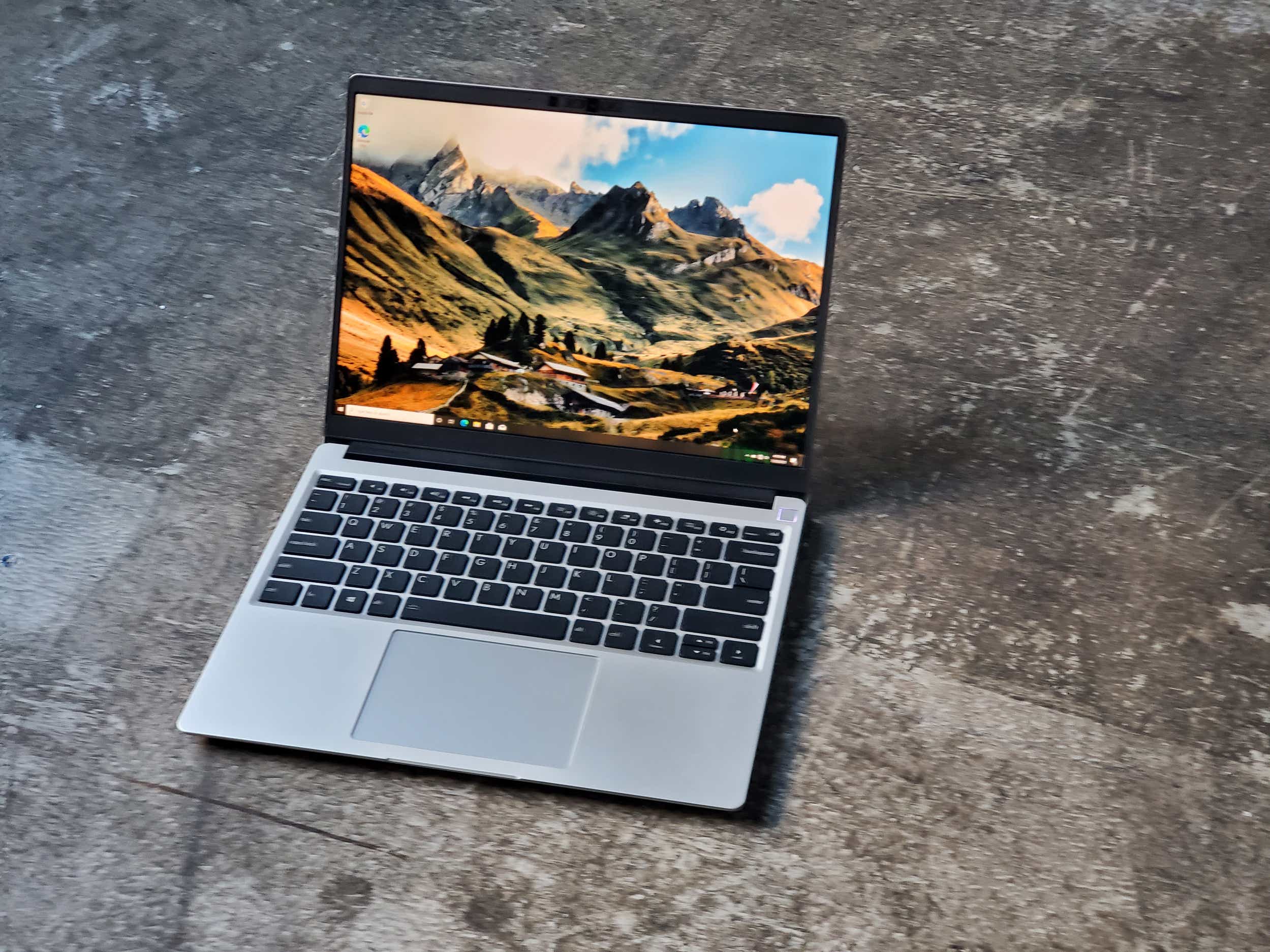 Read our reviewPrice When Reviewed:$1999Best Prices Today:$1999 at Framework
Read our reviewPrice When Reviewed:$1999Best Prices Today:$1999 at Framework
Absent leadership from PC makers, start-ups have seized the initiative. Framework, a small company focusing on repairable laptops, released its first laptop in 2021. The Framework laptop is easy to disassemble with a Phillips-head screwdriver and is highly modular. Even the keyboard and motherboard can be replaced. This was enough to earn it a score of ten (out of ten) from iFixit. Framework is also focused on making parts readily accessible, a key sticking point for other machines. Some larger laptops from Dell, Lenovo, and HP are not hard to repair, but finding the parts can be a hassle.
System76, which focuses on laptops and other PCs that ship with Linux, also deserves mention. The company doesn’t focus on repairability in its marketing, but users report good luck repairing its machines, most of which have a straightforward design and use philips-head screws.
Despite this, each company’s impact is blunted by the company’s size and niche appeal. Framework is not a household name even among PC enthusiasts and System76’s commitment to Linux guarantees it won’t reach shoppers browsing for a laptop on Amazon. Innovation in repairability needs to happen at scale.
I hope Dell’s Project Luna concept is a sign the company is ready to take this aspect of sustainability seriously. It has the reach and marketing know-how to make repairability important. If Dell moves forward, others may follow.
What about Apple?
I’ve focused this discussion on the PC market (this is PCWorld, after all). Still, it’d be silly not to bring up the 1,000-pound gorilla from Cupertino.
Apple is, broadly speaking, a company PC makers should aspire to emulate. It plans to take its entire supply chain carbon-neutral by 2030. It’s also aggressive in the use of sustainable, recycled materials and smart packaging in its products.
This shows in product impact reports, where Apple quotes carbon emission estimates below the competition. Apple’s new MacBook Pro 16, for example, has an estimated lifetime impact of 349 kg CO2. That’s barely more than Dell’s smaller, less performant XPS 13.
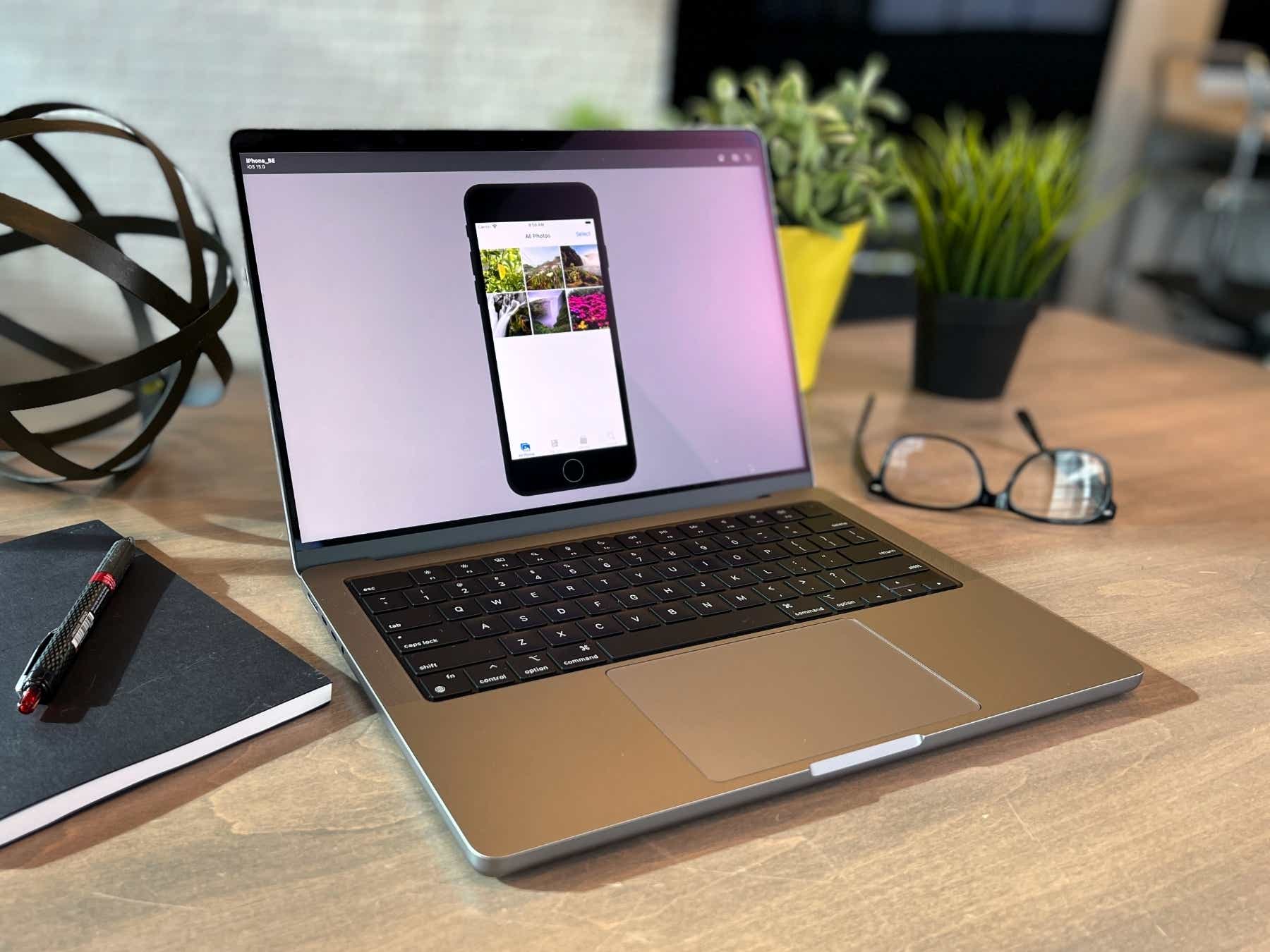
Repairability is a weakness for Apple, with its products consistently scoring far below a typical PC laptop in iFixit’s repairability reports. Only Microsoft’s Surface line has a similarly lackluster track record.
Apple is making a move in the right direction with Self Service Repair, however, an initiative that will make parts and repair manuals available to consumers. This service will roll out through 2022, so it remains to be seen how well Apple will execute this plan.
On sustainability, some lead and some follow
Does sustainability differ between PC makers? I believe it does.
Dell, Lenovo, and HP are the leaders. Each company publishes corporate sustainability reports with metrics, makes concrete pledges with clear data, and publishes product impact reports that help you gauge the relative carbon footprint of a PC you want to buy.
This makes your choice clear. If sustainability is high on your list of priorities, you should buy from Dell, Lenovo, or HP. Start-ups like Framework and System76 are also worth a look.
Author: Matthew S. Smith
Matthew S. Smith is a freelance technology journalist with 15 years of experience reviewing consumer electronics. In addition to PCWorld, his work can be found on Wired, Ars Technica, Digital Trends, Reviewed, IGN, and Lifewire. Matthew also covers AI and the metaverse for IEEE Spectrum and runs Computer Gaming Yesterday, a YouTube channel devoted to PC gaming history.
Recent stories by Matthew S. Smith:
Acer Predator Helios Neo 18 review: A huge gaming laptop for a small priceAcer Chromebook 516 GE review: A cloud gaming powerhouseAsus Zenbook 14 OLED review: A budget laptop star







